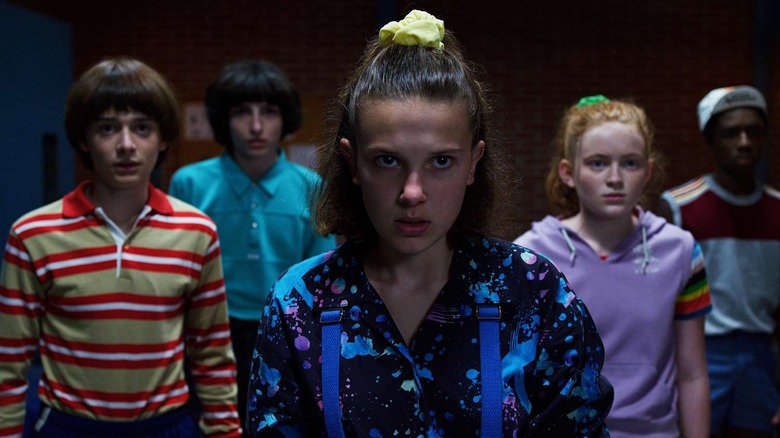Poker Face Proves Television Still Works Best When Released Weekly
As season 1 of "Poker Face" wraps, it's gone from one of the year's most anticipated new shows to one of its most acclaimed. Led by a likable performance from Natasha Lyonne as Charlie Cale, "Poker Face" is a retro (but refreshingly not meta) throwback to case-of-the-week murder mysteries, the type that dominated 1970s television.
Part of why I've been enjoying the series is not just its content or style, but how it has been released. Peacock debuted the first four episodes on January 26, but after that, "Poker Face" shifted to a weekly release model. That was definitely the right call.
For one, "Poker Face" is an episodic series; any continuity from episode to episode is so insignificant it can all be summed up in a "Previously on..." segment. Weekly releases don't just fit the show's case-of-the-week storytelling, they're also a breath of fresh air. The success of "Poker Face" proves once more that the appeal of TV is in its episodic nature.
The age of binge-watching
Ever since Netflix got into original programming a decade ago, their release model has been "every episode in a season all at once," with few exceptions. Both seasons of Lyonne's previous TV series, "Russian Doll" were released in this manner.
Back in 2013, this was an idea that seemed novel and innovative. Everyone who's had a favorite TV show knows how agonizing the week-long gap between episode releases can be. The appeal of streaming services is that you can watch TV anytime, anywhere; binge-watching was already taking off thanks to home media and this brought it to a new level. Dropping every episode at once was feasible because Netflix also didn't have to worry about filling up airtime as a network does.
I'll admit my teenage self enjoyed not having to wait weeks between "Daredevil." But with the benefit of hindsight, I think Netflix's release model was the wrong idea. When you have 13 TV episodes in front of you, watching them starts to feel like a chore rather than a diversion. Since Netflix's business model is based on a continual (unsustainable) release of new TV and films, it creates a glut. I still haven't finished season 4 of "Stranger Things" simply because it's too much of a time commitment. Navigating this is a whole lot easier if you only have a set schedule and only one episode to watch at a time. As I've watched "Poker Face," that's been its strength.
Case of the week
The "all at once" mode of release has reverberated back on TV's production process. Streaming series have started to feel like movies stretched into 8-10 hours and episodes blur together. "Poker Face," though, is not just released like a TV show, it's made like one; each episode stands on its own merits and not just as part of a whole. Like its predecessor "Columbo," the series' through-line is Charlie herself; there's not just a new mystery every episode, there's a whole new supporting cast and setting too. One episode sees Charlie investigating a murder at a Texas barbecue joint, in the next she's touring Wisconsin with a metal band. Since each episode of "Poker Face" is so different from the next, they're also best viewed one at a time.
Part of the fun of investing in a TV series is anticipation; an all-at-once release model saps this away. However, it's essential to "Poker Face." You're only with Charlie for an hour each week, so she doesn't overstay her welcome. Instead, you're always looking forward to spending more time with her. If you watched 10 episodes of her solving as many murder mysteries back-to-back, the formula could grow tiresome. With one episode every week, it's instead a comfortable respite.
Episode-by-episode releases also help TV series find their audience. Every week thrusts the series back into the limelight, giving it more than one chance to grab viewers and a longer window for word of mouth to spread. Since "Poker Face" is already renewed for season 2, the weekly releases evidently didn't hurt it.
Streaming has blurred the lines between film and TV, but the lesson Netflix could take from cinematic distribution is one that "Poker Face" already did: open with a staggered release.


